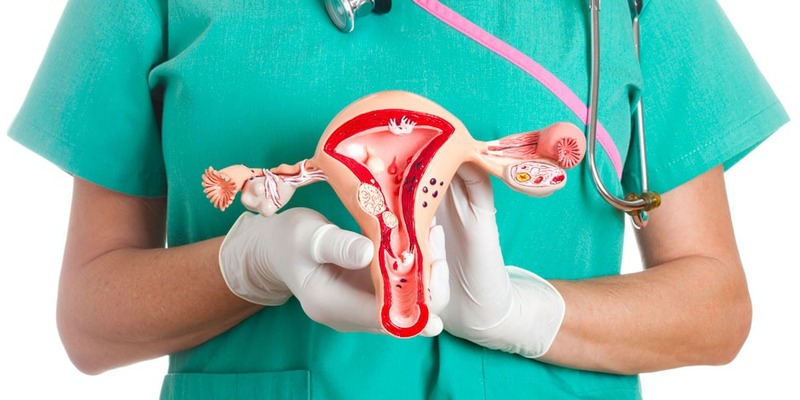Know About Dual Diagnosis: Substance Abuse and Mental Health
2023-11-15 00:00:00 By Nancy Miller
In dual diagnosis, people with mental health issues use addictive medicines to feel better or to avoid their troubles. But, it makes things more difficult and requires extra care. It is more common than most people realize for this to occur simultaneously, emphasizing the need for immediate, tailored answers.
This article delves deeply into the complex topic of dual diagnosis, examining its prevalence, causes, and the significance of employing a range of therapeutic approaches.

What Is A Dual Diagnosis?
Co-morbidity or co-occurring disorder are the other names for Dual Diagnosis. A person with this condition suffers from substance use disorder and faces mental health issues at the same time.
It may surprise you, but it's a fact that more than fifty percent of people suffering from any mental health issues are also substance abuse. When the patient suffers from anxiety or depression, he starts taking the substances he is addicted to. Consequently, it worsens things as it keeps repeating in a cycle.
If you are anyone else in your surroundings is suffering from this particular condition, ask the doctors for help. For healing, patients get sophisticated therapy.

Mental Health And Substance Abuse
Co-occurring diseases or dual diagnoses include mental health issues and substance abuse, including depression, bipolar disorder, or anxiety. When you have mental health concerns, addiction, intoxication, or substance misuse are considerably tougher to manage.
Mentally ill people may use medications to feel better, complicating their relationships. However, long-term addictive medicine usage might worsen mental health issues. One affects the other both ways. It's crucial to understand how Substance Abuse and mental illness impact one another.
Both difficulties must be addressed for the solution to succeed. Finding this relationship allows patients to receive complete mental health and Substance Abuse care, leading to a healthier and more balanced existence.
How Common Is Dual Diagnosis?
It's surprising how prevalent dual diagnosis is. It's similar to dealing with two problems at once: substance abuse problems and mental health issues. Empirical data indicates that a noteworthy proportion of people encounter this intersecting circumstance.
This frequency highlights the necessity for specific knowledge and care. See it as a shared journey where Substance Abuse and mental health come together and impact one another. Substance abuse can exacerbate mental health problems in people with multiple diagnoses because it provides a coping mechanism for mental health difficulties.
Acknowledging the similarities between dual diagnosis is essential to raising awareness and ensuring people get the specialized care they require to care for both facets of their well-being simultaneously.
Which Disorder Comes First When You Have Dual Diagnosis?
As it varies from person to person, figuring out which dual-diagnosis disease appears first is like solving a puzzle without a clear solution. People may use Substance Abuse to cope with mental health issues before they develop them. However, substance addiction can aggravate mental health difficulties.
Since the relationship is dynamic, one does not cause the other. Think of it as a complicated dance with potentially different steps. Comprehending the sequence of onset is essential for customized intervention tactics. Substance use may come before mental health issues for some people, while mental health issues may come before substance use for others.
The personalized approach acknowledges the distinct journeys that every individual takes and underscores the importance of all-encompassing, compassionate treatment that concurrently attends to mental health and Substance Abuse.
Dual Diagnosis Causes
The causes of dual diagnosis are similar to threads connecting problems with Substance Abuse and mental health. This intricate junction results from many circumstances, making it different for everyone. Trauma, inherited traits, or chronic stress are examples of mental health issues that might set the scene.
People may use addictive medicines as a means of coping with these difficulties, which starts to entwine the two. Conversely, Substance Abuse itself has the potential to trigger mental health issues. Comprehending these origins is essential for customized remedies.
It entails removing the layers and realizing they don't always come first. To address the complex relationships between multiple diagnoses and provide comprehensive assistance that takes into account both Substance Abuse and mental health concerns, a path toward balanced well-being must be fostered.
Dual Diagnosis Symptoms
Symptoms of dual diagnosis are similar to signs that indicate the co-existence of Substance Abuse issues and mental health disorders. People dealing with more than one condition may display various symptoms. Symptoms related to mental health could include ongoing melancholy, anxiety, mood changes, or trouble focusing.
Increased tolerance, withdrawal symptoms, or a failure to fulfill obligations are all examples of concurrent Substance Abuse symptoms. Realizing that these symptoms influence one another and coexist is crucial. Mental health and substance abuse combine to form a distinctive pattern.
It is essential to comprehend these signs for early intervention and individualized care. Behavior, mood, or daily routine changes may indicate that one or both of these areas require care. Through a thorough acknowledgment and treatment of these symptoms, people may start the process of healing from substance abuse while also taking into account their mental health.
Dual Diagnosis Treatment
Therapy for both your Substance Abuse problem and mental health issue will be provided concurrently throughout dual diagnosis therapy. You and your healthcare physician will collaborate to comprehend the inter dependencies between your diseases. It will assist you in identifying the most successful course of therapy.
You have to give up the addictive medicines if you want to heal from a dual diagnosis. For many, detoxification could be the first step in this. You will be under the constant observation of medical professionals for up to a week while undergoing inpatient detoxification.
They'll offer strategies to mitigate the effects of withdrawal and assist you in weaning off the addictive medicines. Depending on several circumstances, your multiple-diagnosis treatment may involve behavioral therapy, medication, support groups, or inpatient care.
Conclusion:
To sum up, a comprehensive approach to mental health and Substance Abuse requires a knowledge of dual diagnosis. Because one feature might affect another, this intricate interaction needs specialized attention. Due to the prevalence of dual diagnoses, specialized therapies are required.
Understanding the complex link enables comprehensive Substance Abuse and mental health care, promoting a more balanced and healthy way of life. The origins, symptoms, and treatment of dual diagnosis highlight the necessity of managing mental health and Substance Abuse. People can start along the path to recovery and well-being by recognizing and addressing these interrelated issues.








